“If we don’t offer children literature from other languages, we are starving them.” Philip Pullman (TES, 2005)
 Phew! I’d been planning on doing a round-up of some of the speeches and talks I sat in on at the ALA Conference in Orlando a week or so ago, only to find that I’d lost my notes. They have since resurfaced.
Phew! I’d been planning on doing a round-up of some of the speeches and talks I sat in on at the ALA Conference in Orlando a week or so ago, only to find that I’d lost my notes. They have since resurfaced.
When one attends an ALA Conference in full, it is useful to decide early what kind of talks you’d like to attend. Is your interest in copyright or preservation? Do you have more of a yen to learn about sustainable thinking, coding groups, STEM collaboration, or small scale digitization? This year I decided to concentrate more on international children’s literature. It’s an interest that has grown within me over the past few years and I was curious to learn more about the topic.
First up, Diverse Books from Across the Globe. Description: “How can the local library help voices from emerging markets and developing countries be heard? How can we make their books available to refugee populations and foreign language speakers across the United States? Join innovators from Library for All to look at how libraries can continue to support access to quality educational materials in an increasingly global context.” The panelists included Rebecca McDonald of Library for All, Kerri Poore of First Book, and Hannah Ehrlich of Lee & Low Books.
This was right up my alley. As I say, my interest in international literature for kids has peaked over the last few years, possibly kickstarted by an event held at The New School in NYC that addressed American discomfort with books from other nations. With all the talk of getting kids to read more diverse books, there’s been very little talk about getting kids to read books that are from a diverse range of countries. Windows and mirrors are great, but why do the windows always have to look at our own back yards? Now with the rise of Donald Trump and the recent Brexit vote, nativism is at an all-time high, making me wonder why we don’t talk more about the value of teaching kids about other cultures through those nations’ books. I’m no innocent. I don’t think the world’s problems can be solved if kids in Texas read more books written for kids in Iraq. Nor do I think that American discomfort with the art of other nations (whether it’s foreign films or translated novels) is relegated solely to picture books. That said, there is value in learning, at a young age, the different ways in which other nations and cultures tell their stories.
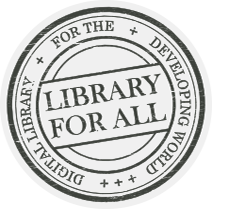 So! The talk! It was such an interesting collection of speakers. The focus of this particular panel was how to meet the needs of kids in the United States that have families from international cultures. I confess that I’d never heard of Library for All before. Though their primary purpose is to bring books to poverty stricken areas of the world, the organization also works closely with First Book to bring books from other countries to kids here in America. What struck me as particularly interesting is how they will essentially become book detectives for specific cultures and languages. Which is to say, they’ll go into other countries to seek out and find books that would otherwise never make it to American shores.
So! The talk! It was such an interesting collection of speakers. The focus of this particular panel was how to meet the needs of kids in the United States that have families from international cultures. I confess that I’d never heard of Library for All before. Though their primary purpose is to bring books to poverty stricken areas of the world, the organization also works closely with First Book to bring books from other countries to kids here in America. What struck me as particularly interesting is how they will essentially become book detectives for specific cultures and languages. Which is to say, they’ll go into other countries to seek out and find books that would otherwise never make it to American shores.
When it was time for questions I asked how librarians can work to promote international books here in the United States. There are some problems with doing so, of course. There is, and has always been, a marked preference for diverse American books vs. diverse international literature. Add in the fact that such books can only win a couple awards here and there, and there’s very little incentive on the part of the publishers to promote or distribute them.
In answering it was Hannah Ehrlich who gave me quite a lot to chew on. She pointed out to me (and this is key) that this isn’t just a children’s book problem. The wider difficulty comes with getting Americans as a whole used to different narrative styles. One way to do this is to get very young children used to these different kinds of books from the start.
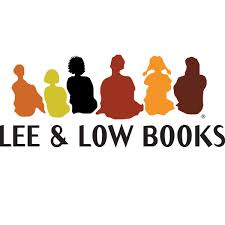 Another factor? The discoverability of international children’s book is key. Visibility is, in many ways, the greatest hurdle to overcome. That’s why we have USBBY lists like their yearly release of Outstanding International Books (you can find the 2016 list here). But the greatest hurdle? Getting such books into curriculum. To do this, publishers like Lee & Low work with the school and library market. The problem is that the text complexity of these books is often their downfall. Books written for foreign markets don’t care two bits about leveling. As a result, they’re often kept out of those schools that live and die by Fountas and Pinnell and their ilk.
Another factor? The discoverability of international children’s book is key. Visibility is, in many ways, the greatest hurdle to overcome. That’s why we have USBBY lists like their yearly release of Outstanding International Books (you can find the 2016 list here). But the greatest hurdle? Getting such books into curriculum. To do this, publishers like Lee & Low work with the school and library market. The problem is that the text complexity of these books is often their downfall. Books written for foreign markets don’t care two bits about leveling. As a result, they’re often kept out of those schools that live and die by Fountas and Pinnell and their ilk.
So what can be done? The panelists had some excellent suggestions. First off, let’s be honest. International children’s literature can sometimes be a hard sell. You can’t introduce these books to Americans cold. If you’re going to introduce a global perspective into your classroom, you need to foster a dialogue around these books. As for librarians, do displays of translated children’s books! Start international book clubs where you highlight a different country every month. And be aware that some types of books simply do not exist in other countries. Young adult literature, for example, just isn’t an age level designation in some places.
It was a good talk.
The second one I attended a little later was entitled Conversation Starter: Other People’s Voices: Using Global Literature in Translation to Reimagine Diversity in Libraries. Its panel consisted of Rachel Hildebrandt, Marc Aronson, and moderator Doris Gebel.
The problem? I had difficulty finding the room and missed Marc Aronson’s opening remarks. Too bad, since the man is a positive machine of good quotes. Here’s one I was able to catch:
“It is wrong to hem our children in to a national experience when they are living an international experience.”
Since the focus on this talk was, to a certain extent, translation, I was particularly intrigued by a mention made of something called The Global Literature in Libraries Initiative. In June there was an excellent piece in YALSA’s The Hub blog explaining what this is. As their mission statement says:
“. . . the Global Literature in Libraries Initiative strives to raise the visibility of world literature for adults and children at the local, national and international levels. We intend to do so by facilitating close and direct collaboration between translators and librarians, because we believe translators are uniquely positioned to help librarians provide support and events to engage readers of all ages in a library framework that explores and celebrates literature from around the world.”
There are a lot of great points in the piece. For example, when talking about the lack of international books available to a lot of kids today in our increasingly interconnected global world it said that, “Librarians play a key role in counteracting this dangerous insularity.”
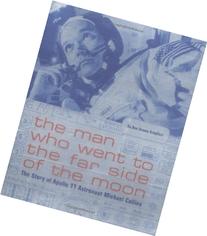 On the panel, the panelists mentioned that our love affair with translation is a funny, fickle thing. We do well when it comes to Pippi Longstocking, but we’re not great when it comes to contemporary literature. That gives the U.S. book market, and American children’s books in general, cultural dominance. To get an outsider perspective is invaluable to kids today. For example, in 2004 Chronicle Books won the Batchelder Award for The Man Who Went to the Far Side of the Moon: The Story of Apollo 11 Astronaut Michael Collins by Bea Uusma Schyffert, translated from the Swedish by Emi Guner. And let me tell you, our space program looks a LOT different when its story is told by someone other than rah-rah Americans.
On the panel, the panelists mentioned that our love affair with translation is a funny, fickle thing. We do well when it comes to Pippi Longstocking, but we’re not great when it comes to contemporary literature. That gives the U.S. book market, and American children’s books in general, cultural dominance. To get an outsider perspective is invaluable to kids today. For example, in 2004 Chronicle Books won the Batchelder Award for The Man Who Went to the Far Side of the Moon: The Story of Apollo 11 Astronaut Michael Collins by Bea Uusma Schyffert, translated from the Swedish by Emi Guner. And let me tell you, our space program looks a LOT different when its story is told by someone other than rah-rah Americans.
Doris Gebel urged the attendees to start kids young on international literature. Fail to do so and they won’t have a yearning for it as teens. Show them those “strange” books that confuse you, the adult. “Our young children need other books from other lands every day.”
Mention was made of the two major book lists/awards of translated children’s literature in the States. One is the Batchelder Award (named after Evanston librarian Mildred L. Batchelder so HOMETOWN PRIDE!) which is given each year. The International Books List (which I mentioned before) celebrates 40 books and breaks them down by age groups. That’s great, but the bulk of the books are from Western countries.
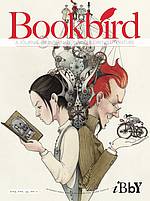 It was at this point that Marc Aronson spoke about the importance of distinctive translations. Take Anne Frank’s diary, for example. The version we read in schools is a very particular rendering. A lot of people would be shocked to hear that there are different versions out there. This reminded me of an article I read in Book Bird (a fantastic international children’s book periodical) years ago about how translating Hans Christian Andersen changes the meaning of his stories, depending on the translator. Until I read that piece it wasn’t something I’d thought about. As Marc said, “Translation is a creative act.” Mention was made at this time of the fact that for the very first time a woman has translated an edition of Madame Bovary. Meanwhile the famous translator of 100 Years of Solitude just died. If you think you know that book and you speak English, you only know his version.
It was at this point that Marc Aronson spoke about the importance of distinctive translations. Take Anne Frank’s diary, for example. The version we read in schools is a very particular rendering. A lot of people would be shocked to hear that there are different versions out there. This reminded me of an article I read in Book Bird (a fantastic international children’s book periodical) years ago about how translating Hans Christian Andersen changes the meaning of his stories, depending on the translator. Until I read that piece it wasn’t something I’d thought about. As Marc said, “Translation is a creative act.” Mention was made at this time of the fact that for the very first time a woman has translated an edition of Madame Bovary. Meanwhile the famous translator of 100 Years of Solitude just died. If you think you know that book and you speak English, you only know his version.
Today, things are perking up. In the last five years we’ve seen more small independent presses translating children’s books than ever before. Often these publishers are their own translators. Look at that USBBY list. It’s almost entirely small presses. And if these small presses don’t get reviewed in most of the journals out there (Kirkus is beloved to me because they take special care in reviewing the little guys) then the books just don’t get any attention.
When the audience members came up to speak, we heard some fascinating takes on all this. One woman said that the bulk of books translated from Colombia in the United States are about losing weight. She has Colombian immigrants in her library wondering aloud to her why Americans want them to lose weight so much, but that’s just what’s (weirdly) available.
So let’s talk solutions. What can libraries do to promote translated materials? Well, we could work with our immigrant communities more. Doris also pointed out that storytimes of translated books and library displays of translations could be useful as well. That got me to thinking how cool it would be if someone were to create lists like, “Top Ten Kids’ Books Translated from German” or “Top Ten Kids’ Books Translated from Swahili”. Or by country!
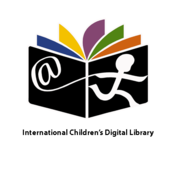 Which finally brings us to the International Digital Children’s Library. If you haven’t seen it yet, please check it out. Seeking to serve the international community, the site makes, “the best in children’s literature available online free of charge.”
Which finally brings us to the International Digital Children’s Library. If you haven’t seen it yet, please check it out. Seeking to serve the international community, the site makes, “the best in children’s literature available online free of charge.”
Also mentioned was the collection at Worlds of Words, at the University of Arizona. The description reads, “Worlds of Words is committed to providing a range of resources to encourage educators at all levels to integrate global literature into the lives of children. The resources on this site grew out of work in schools around the world and the identification of needs…”
Thanks to both panels for this fascinating exchange of ideas. Much to chew on here.




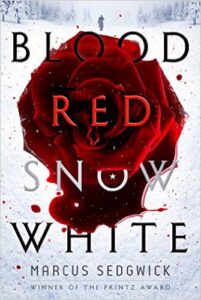

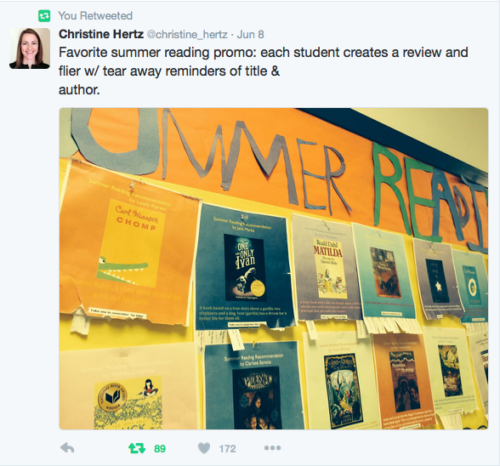

Great post. In addition to librarians, I’d say do whatever can be done to get classroom teachers on board. But boy is it challenging right now as so many in this country seem to want nothing to do with other places and people. If there are those who see no need for windows to our backyards how do we get them to consider putting in telescopes so as to look further?
Great post Betsy! Sorry we missed each other at ALA. There is also the International Librarian Network (ILN) which is a great resource for mentoring and connecting with international peers from more than 60+ (maybe even more?) countries.
Worlds of Words is housed at the University of Arizona in Tucson, and it truly is a wonderful collection. There are many resources for educators and researchers; most are on-line at http://www.wowlit.org.
I forgot to mention that one! Thanks for the tip, Amie, and doggone it! You were there too? Next time I’m coordinating better.
Thank you for this thorough report and for your support of international children’s literature in translation. I’m glad you appreciated my piece for The Hub and look forward to writing more. And your point about reviewers and small presses, recognizing those that take chances on books from other countries, is an important one. I’m now translating children’s books from Portuguese and Spanis to English and am very much aware that we translators are our authors’ representatives in the new country.
Thanks for bringing attention to this important topic, Betsy. As a former editor of BOOKBIRD, I appreciate the shout-out to that great journal and would recommend the other resources that IBBY.org offers– including International Children’s Book Day and the biennial IBBY Congress. (The next one is next month in New Zealand!) ALA also has an ongoing relationship with IFLA which also has a conference (annually) and several sections devoted to literacy and libraries for children. Of course the Bologna Book Fair every spring is a huge event in the international children’s book community! And I would also recommend the International Youth Library in Munich, Germany, which offers stipends for research and publishes a great list of international children’s books called the White Ravens list. All FYI.
Take a look at this essay we just posted by Elena Abós: http://www.hbook.com/2016/07/creating-books/foreign-correspondence-translator-trafficking-between-cultures/
Thank you for this thorough report! I translate children’s lit from Japanese to English and long to see more titles “cross the pond.” Here is a piece I wrote for Literary Mama on the subject:
http://www.literarymama.com/columns/fourworlds/archives/2014/08/we-need-translated-books.html
Also, the Society of Children’s Book Writers and Illustrators has a member category for Translators now. I serve as International Translator Coordinator and can receive inquiries at: itc [at] scbwi.org
Many thanks again!
You mention “top 10″ lists, which reminded me of a project of IFLA’s Libraries for Children and Young Adults section (mentioned by Sylvia above) — The World Through Picture Books: Librarians’ favourite books from their country. Librarians from around the world selected ten books, still in print at the time (though not necessarily translated into English) to represent their country for this annotated bibiiography, which is available as a pdf at the link below: http://www.ifla.org/node/6718
I have also created several lists of picture books from other countries that are well suited for sharing in storytime: http://globalreading.weebly.com/storytimes.html — with the idea being that we don’t need a special occasion, or an international storytime theme to share books from other countries, but rather that these books can be incorporated into what librarians are already doing, into our everyday practice.
Thanks for coming and for the great recap of our panel, Betsy!